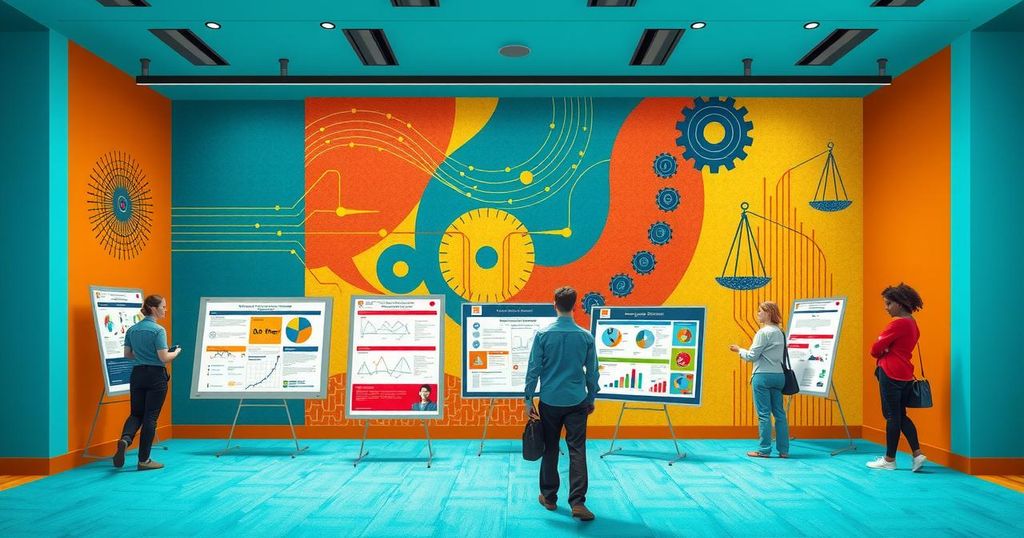MIT Symposium Highlights Intersection of Technology, Ethics, and Society
MIT recently hosted a symposium where faculty shared cutting-edge research integrating ethics, technology, and social responsibility. Supported by grant funding from SERC, topics ranged from AI’s role in social media to improving kidney transplant allocation. The event underscored the importance of community engagement and responsible tech practices.
In a vibrant showcase of innovative thinking, MIT faculty recently presented 15 TED Talk-style discussions, diving into research that intertwines social, ethical, and technical threads in computing. Each project received seed funding thanks to the Social and Ethical Responsibilities of Computing (SERC) initiative, which attracted almost 70 proposals last summer. After careful consideration, a committee comprised of representatives from across MIT helped select the most promising projects, dishing out grants of up to $100,000.
Nikos Trichakis, co-associate dean of SERC, emphasized the importance of this endeavor. He stated, “SERC is committed to driving progress at the intersection of computing, ethics, and society. The seed grants are designed to ignite bold, creative thinking around the complex challenges and possibilities in this space.” The MIT Ethics of Computing Symposium aimed not just to spotlight groundbreaking research but also to invite active community participation in discussions surrounding ethical computing.
The full-day event on May 1, organized around four core themes including responsible healthcare technology and AI ethics, invited speakers to deliver insightful talks on pressing issues such as algorithmic bias and data privacy. The audience was taken on a journey through the social implications of AI while student researchers displayed their works from the year as part of the SERC Scholars initiative. These discussions reflected a collective ambition—a community united in advancing the responsible use of technology.
Among the standout moments was Dimitris Bertsimas’ presentation on enhancing the fairness of the kidney transplant system. Bertsimas, who serves in multiple roles at MIT, revealed a new algorithm that can evaluate transplant criteria in a mere 14 seconds—a significant leap from the typical six hours. Working closely with the United Network for Organ Sharing (UNOS), he highlights the change, explaining, “This optimization radically changes the turnaround time for evaluating these different simulations of policy scenarios.”
In an era of digital narratives shaped by AI, Adam Berinsky and Gabrielle Péloquin-Skulski examined how such content is perceived across social media. Their research, focused on labeling AI-generated posts, found that using a generic label could paradoxically undermine people’s trust in both true and false content. “The big takeaway is that one size doesn’t fit all,” noted Péloquin-Skulski, hinting at the complex dance between information and perception in the digital world.
Lily Tsai discussed her research on enhancing civil discourse through online platforms, with a team that includes Alex Pentland. They seek to augment generative AI’s role in improving digital conversations while tackling the overwhelming nature of online interactions today. Tsai emphasized the need for diligent assessment of technology: “If you take nothing else from this presentation, I hope you’ll take away… that we should all be demanding that technologies are assessed for positive outcomes.”
Catherine D’Ignazio and Nikko Stevens took a surprising turn with their work—rather than simply framing AI in a technical context, they birthed Liberatory AI, a public think tank examining AI from all angles. They collaborated with 25 researchers to generate over 20 position papers, focusing on exploring AI’s social potential while rejecting passive reliance on major tech giants. D’Ignazio put it best, commenting, “Instead of waiting for Open AI or Google to lead, we’ve come together to contest the status quo.”
These presentations and discussions at the MIT Symposium highlighted the diverse and critical practices shaping the landscape of computing today. They remind us of technology’s power, especially when used thoughtfully and inclusively, pushing society towards a brighter, more equitable future.
The MIT Computing Symposium successfully bridged the gap between technology and ethics, with faculty and researchers highlighting essential discussions for a socially responsible future. From improving the kidney transplant process to addressing the implications of AI in social media, the event demonstrated a collaborative commitment towards ethical computing. Initiatives like SERC emphasize a holistic approach—inviting community engagement and striving for a better balance between innovation and societal needs. As the world becomes increasingly shaped by technology, these conversations are not just timely, they’re necessary.
Original Source: news.mit.edu




